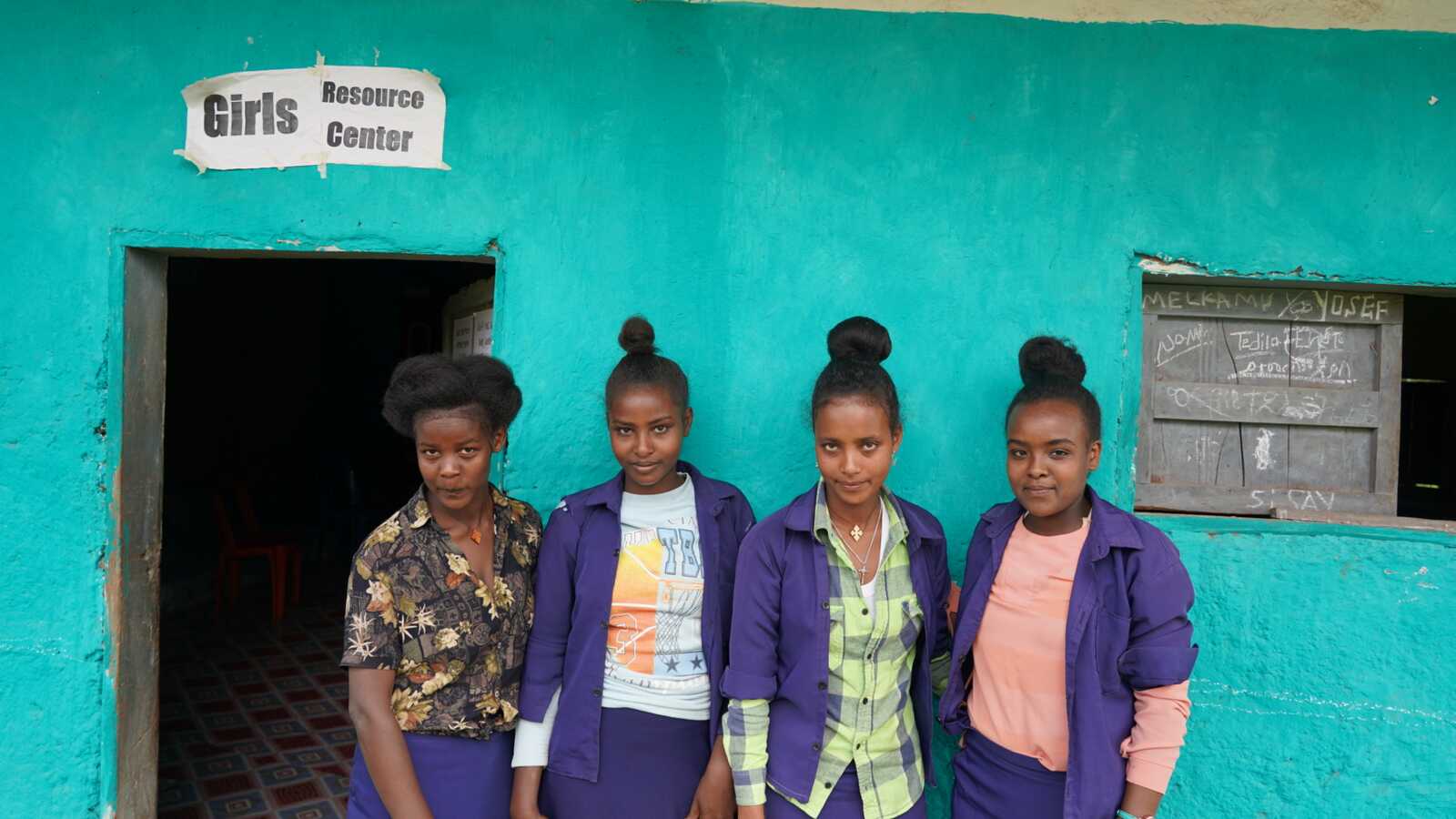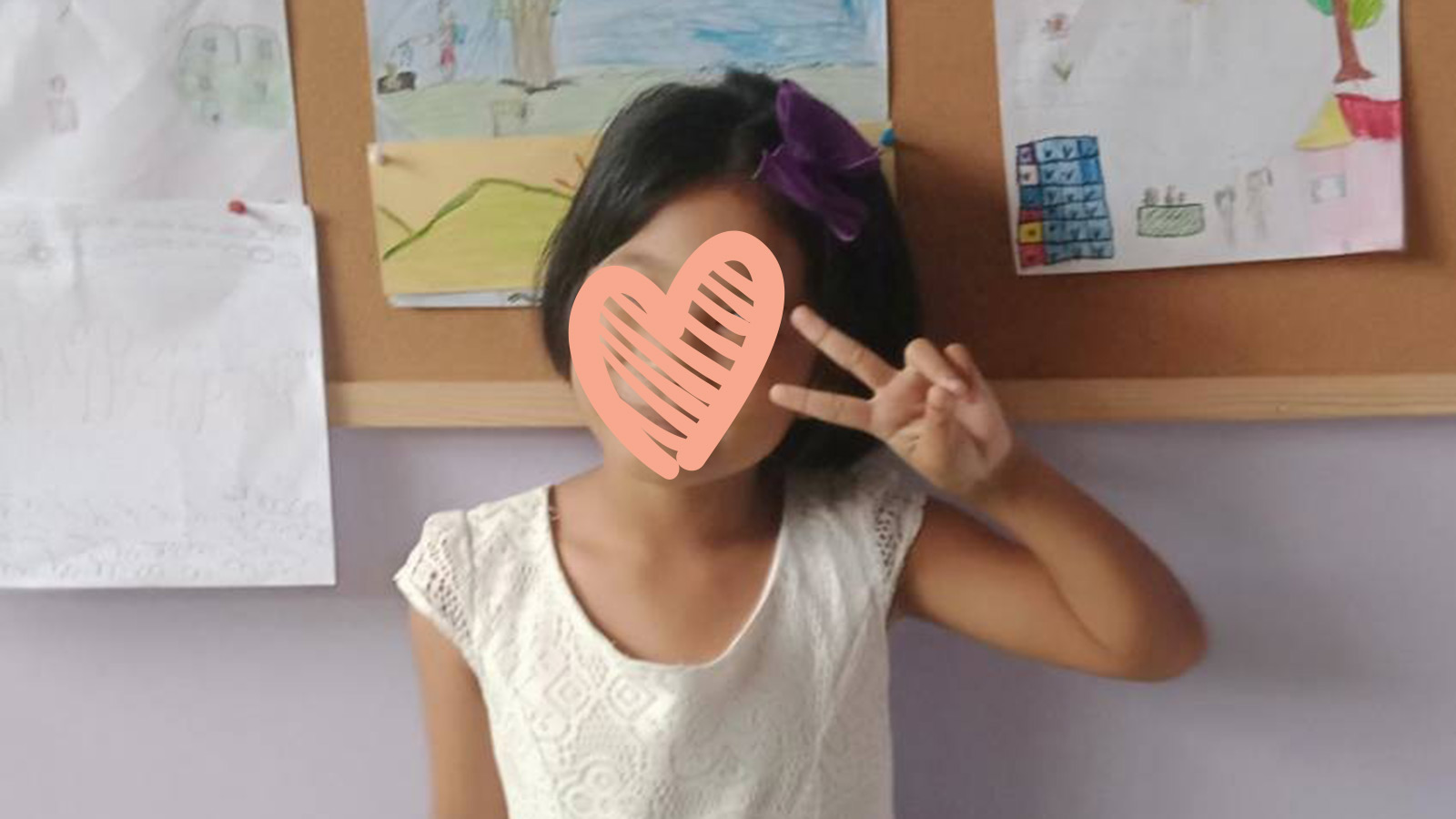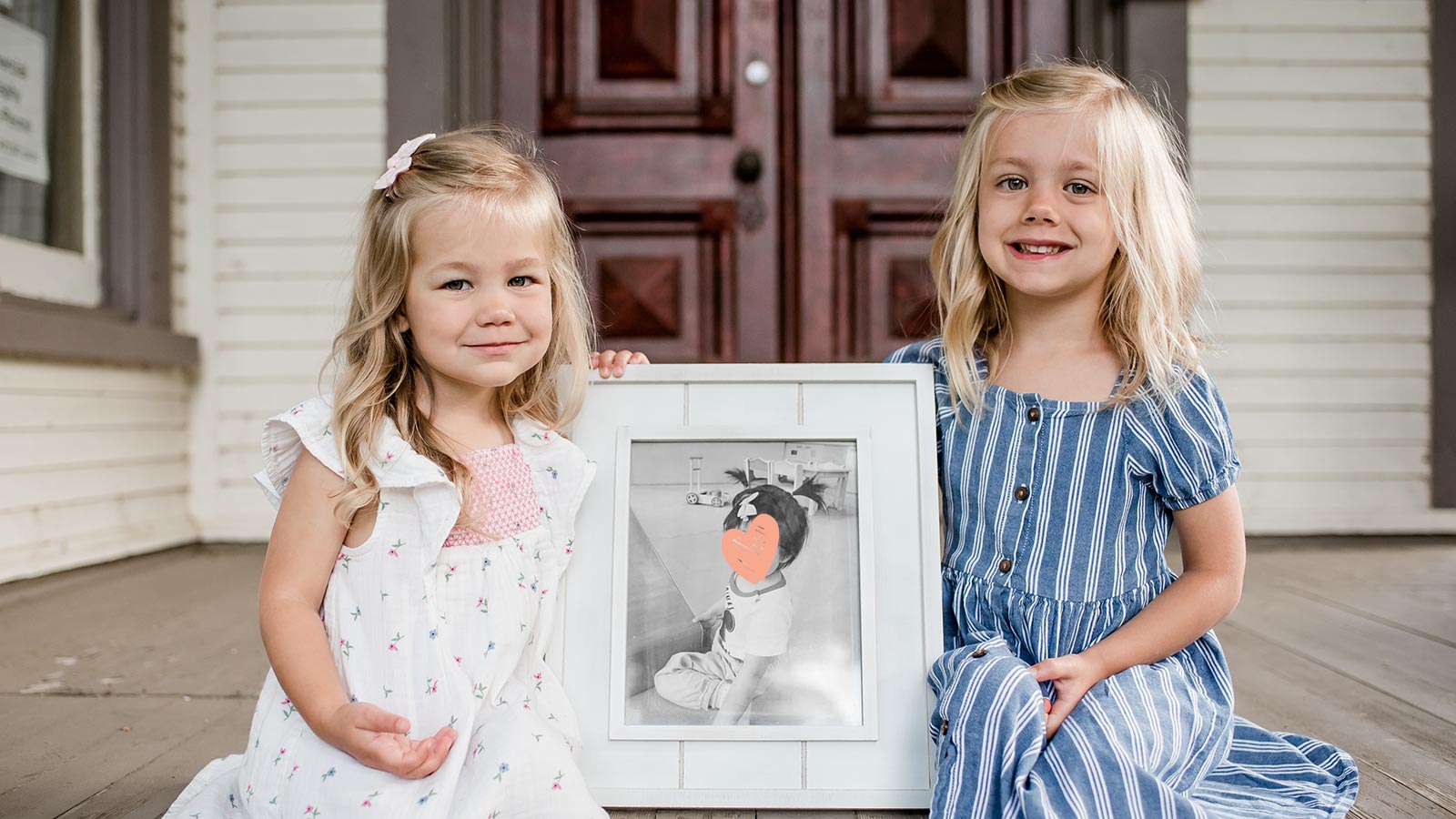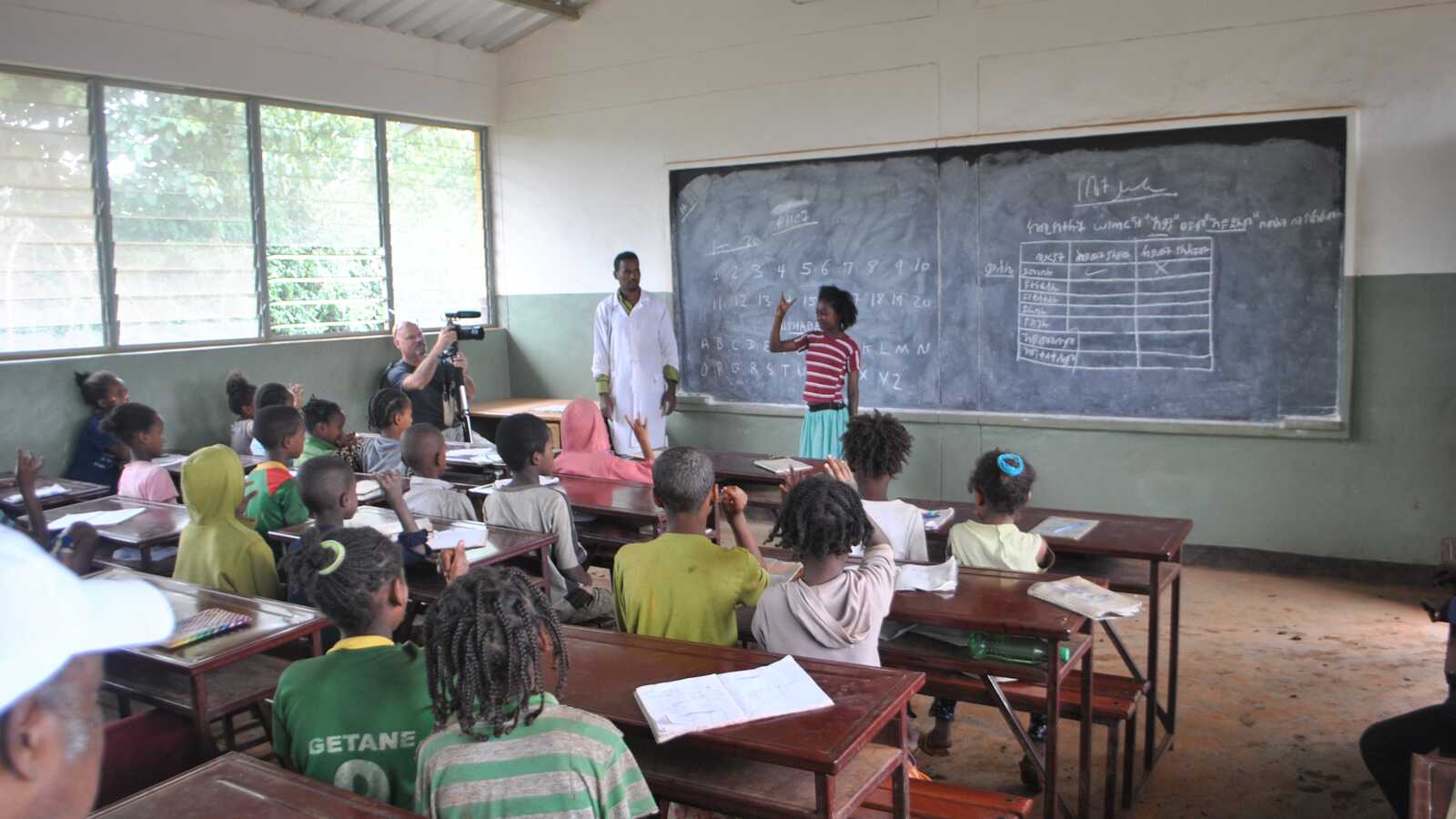Teen girls in Soda, Ethiopia, used to miss up to a week of school each month. Menstruation was a source of shame and embarrassment, and they had no clean or private bathroom to use. But for the first time ever, Holt donors are helping to provide the support and resources girls in Soda need to feel safe — and continue in school.
One day in Gizachew Gebre-Michael’s high school class in Soda, Ethiopia, he saw a group of girls huddled together. One of them had an embarrassing event surrounding her period. He tried to divert attention away, but boys in the class had already begun teasing the girl.
She left his classroom that day, and he never saw her at school again.
“I wasn’t able to convince her parents to bring her back to school,” Gizachew says. “The last update I learned about her is that she got married.”
This teacher’s story sums up the issue of what it’s like to be a girl pursuing education in rural Ethiopia. And sadly, this young woman’s story is not unique.
What It’s Like to Be a Girl in Rural Ethiopia
In Ethiopia, 55 percent of women are illiterate. And in a related statistic, 40 percent of girls get married before age 18. That means that both early marriage and lack of education are a true danger for girls in Soda — and they’re related. For generations, girls have dropped out of school or not even attended in the first place.
As a girl in a place like Soda, you have to fight for your education. But both poverty and stigma are fighting against them.
Many families struggle to earn a reliable income in Soda and even struggle to feed their children. But still, poverty affects one group of people the most — girls and women. And this disparity follows girls to school.
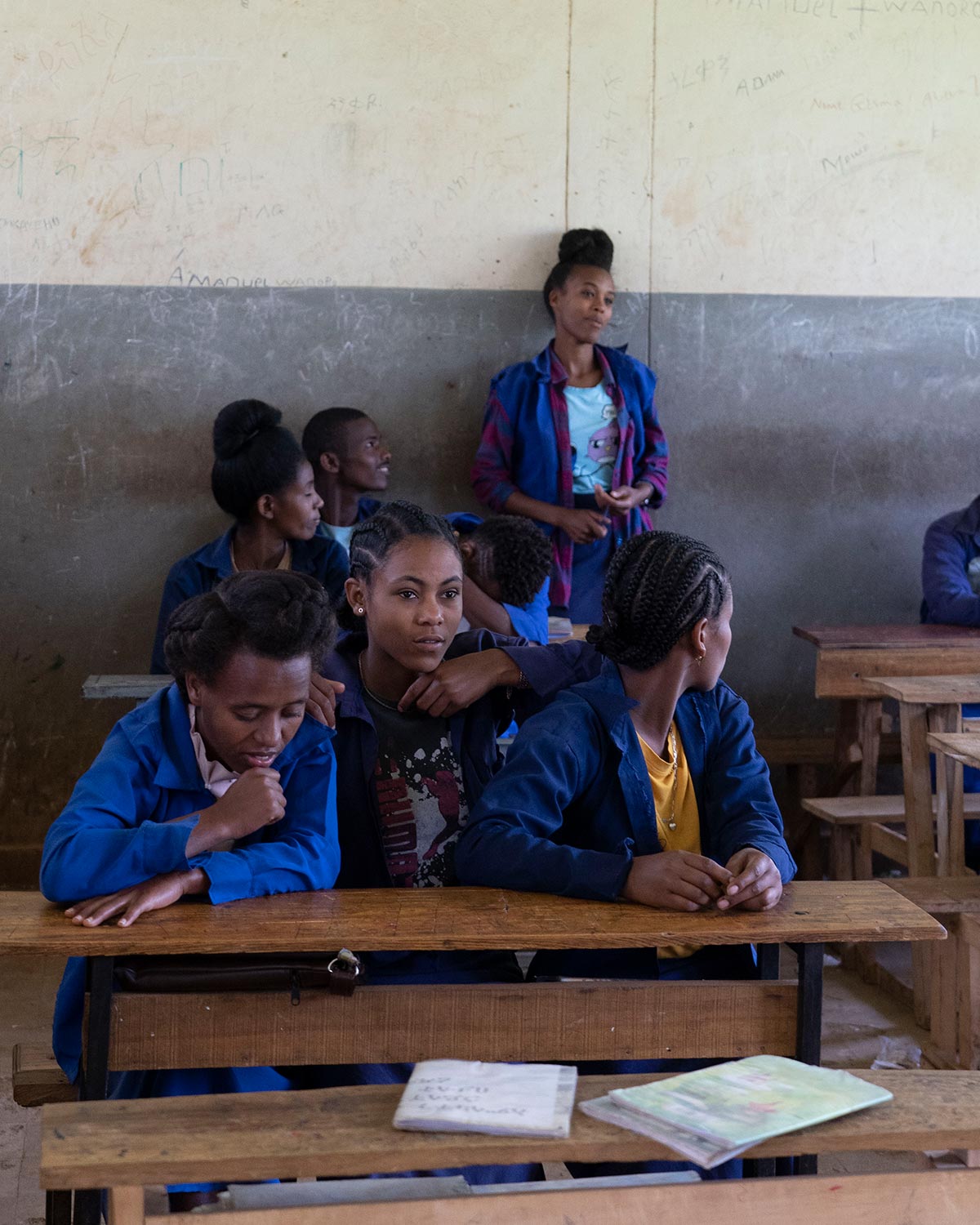
“Even for girls who are going to school, there is a labor demand,” explains Zerihun Gultie, country director for Holt Ethiopia. “She is expected to work at home again [after school] — collecting firewood, collecting water. Also handling household chores.”
At school, the boy students are given more attention by the teachers than the girl students. Eventually, many girls — or their parents — decide it’s not worth their time. Additionally, many girls are teased at school. And this teasing is centered around one very taboo topic in their culture and community. It’s something they can’t talk about at home, and certainly can’t talk about at school: Menstruation.
“It’s something they can’t talk about at home, and certainly can’t talk about at school: Menstruation.”
So last year, Holt Ethiopia gathered teachers, students and parents to talk about just that.
One Very Taboo Topic
Zerihun and other Holt Ethiopia staff gathered a group of local teachers, students and parents from this rural community. They asked about girls’ attendance, what they struggled with and what kind of support they needed to continue in school. They also extended this conversation out into the community via a survey. The results were confirming, but nonetheless shocking.
Holt staff learned that 94 percent of girls left school for 6-10 days per month during their periods. And 78 percent of girls have experienced harassment and being laughed at due to menstruation. This is a huge reason why girls were dropping out at record rates — why so many girls never completed their education and instead got married. Why the cycle of poverty and gender disparity continued into the next generation.
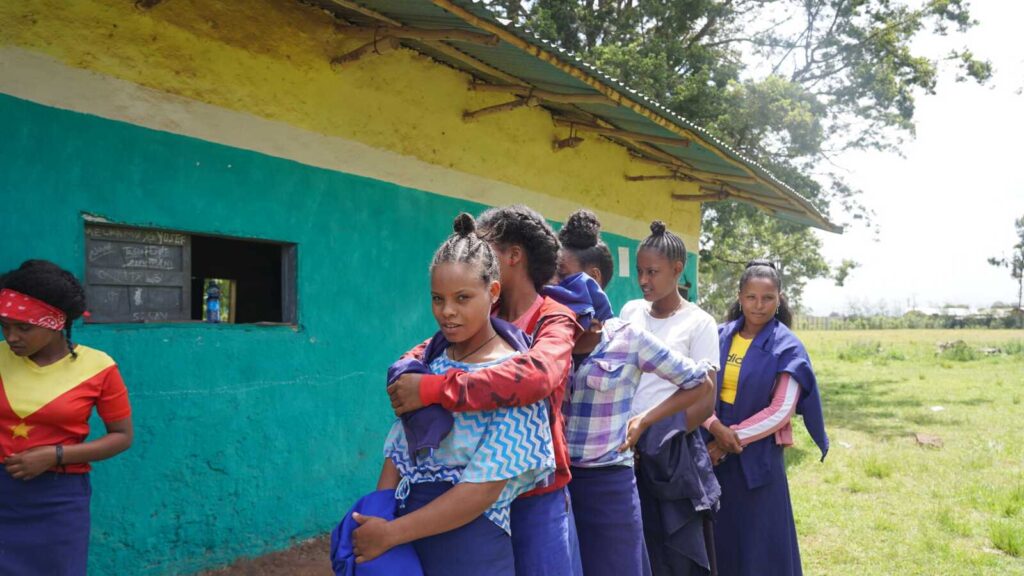
But to keep girls in school here, they need special support — especially surrounding feminine hygiene.
That’s why in 2021, with funding from Rotary International and generous Holt donors, Holt Ethiopia began a new program in Soda’s high school. The aim? To keep girls in school. To see them through to graduation.
Informed by the local community of teachers, parents — and most importantly, high school girls in Soda — Zerihun and his team knew where they needed to start: providing girls at Soda High School with girl-specific support and resources.
And Fana and Gelila are two of the brave girls at the school who helped lead the charge.
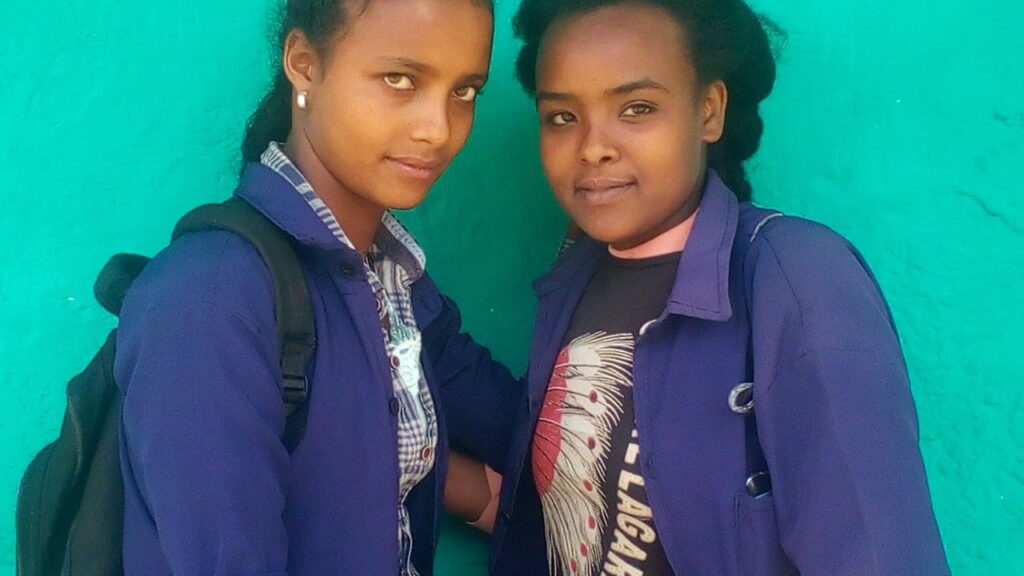
Fighting the Stigma of Menstruation
Fana and Gelila are best friends. Sixteen and 17 years old, they’ve grown up together as neighbors in Soda, Ethiopia. Fana is the oldest girl in her family of seven kids, and Gelila is the oldest of eight siblings in her family.
They’ve bonded as neighbors, oldest sisters in their families, playmates, and classmates since primary school. They laugh and talk for hours. And now, they’re taking on a more serious task – advocating for girls’ education in their local high school.
Fana and Gelila are grateful for the education they’re receiving, and want to help pave the way for younger girls in their community — advocating for them now, so that they can follow their example and learn to advocate for themselves.
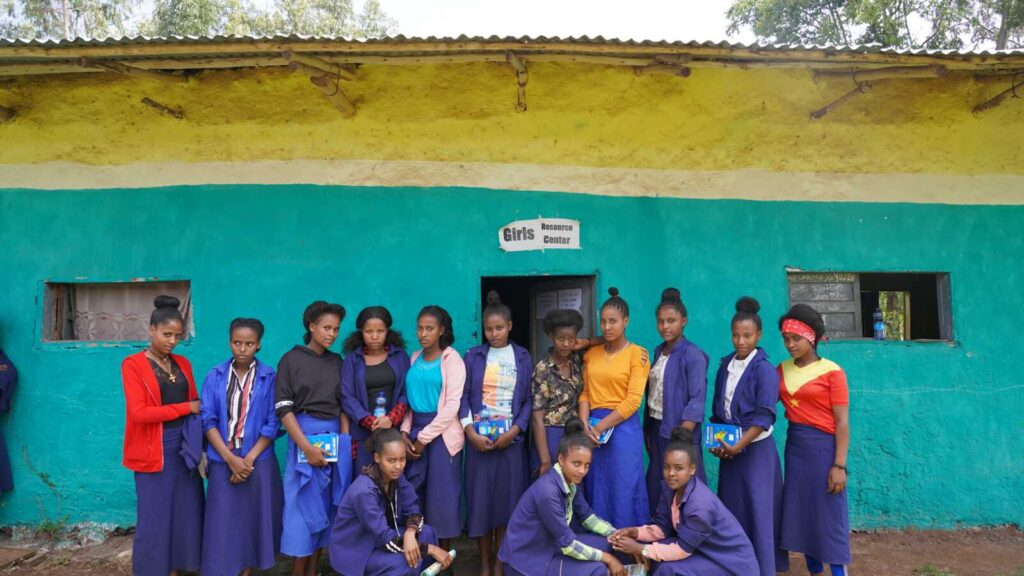
Together with 23 others, Fana and Gelila became part of a girls’ advisory committee at the high school in Soda. The committee regularly meets to talk about current issues, and discuss what they can do to help educate their peers about feminine health. Last year, the committee attended a training on menstrual health management along with teachers and health workers in their community.
Then, on May 28 of last year, the committee helped organize a school-wide celebration for Global Menstrual Hygiene Day. Together with parents, teachers and community members, all students at the school — girls and boys — learned more about feminine hygiene management, how it’s normal and an issue that shouldn’t be stigmatized. The official themes of the event included “End Period Stigma!”, “End Period Poverty” and “Period Friendly For All!”
While it takes years, maybe even generations, to end such a deep-rooted stigma like this, events like the school’s Global Menstrual Hygiene Day are a step in the right direction. But there’s another critical component that can have more immediate results, and that’s making school a safer place for girls.
A Safe Place for Girls
“In general,” says Zerihun, “the school is not conducive for girls. Especially related to feminine hygiene.”
Before Holt came to Soda, there was only one main bathroom facility in the whole school compound for all the students — both boys and girls. With such a lack of privacy, some girls would wait until after school ended to use the facilities, waiting until all the boys went home.
“Even if I came to school with prior preparation,” says Fana, “I didn’t have enough confidence to concentrate on my lesson in the class because I am worried for boys to tease me if I might not manage my period-menstruation.” But now, Fana and girls like her have a safe place to go.
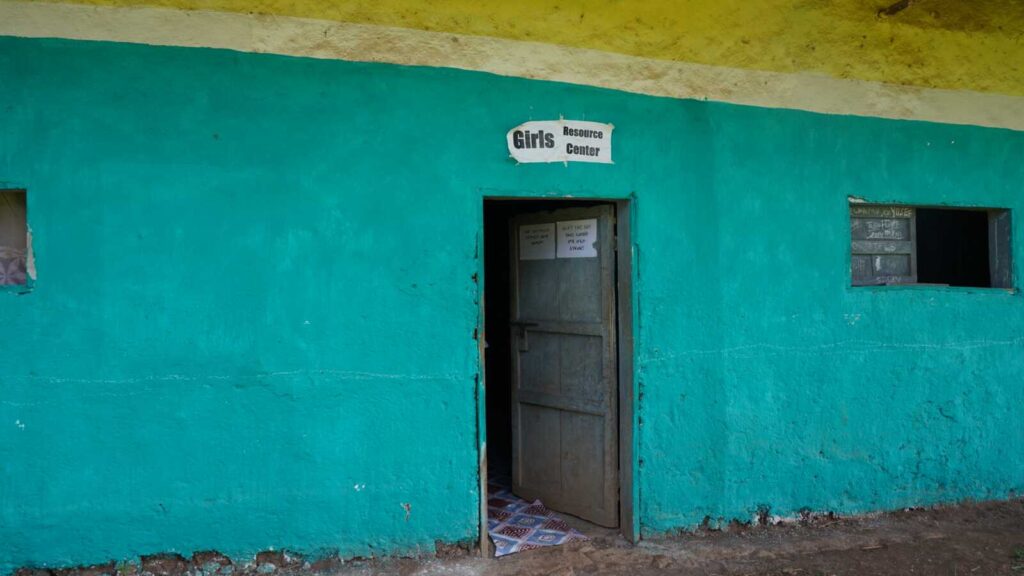
There was one room in the school compound that the students never had access to before. It hadn’t been used in years, and needed some repairs. And now, through the combined efforts of Rotary International, Holt donors, local community members and Holt’s team in Ethiopia, it’s been renovated as a washroom just for the girls. It’s private and clean and always available to them. And it’s right next to another new support service for girls at Soda High School, the girls resource center.
The new resource center is a converted classroom where girls can receive feminine hygiene supplies, use the private bathroom facility, and lay down if they are feeling unwell. It’s a safe place where girls can connect with each other and with female teachers. Not only is it a needed resource for hygiene management and support, but it tells girls in Soda that they’re important, and that they belong at school.
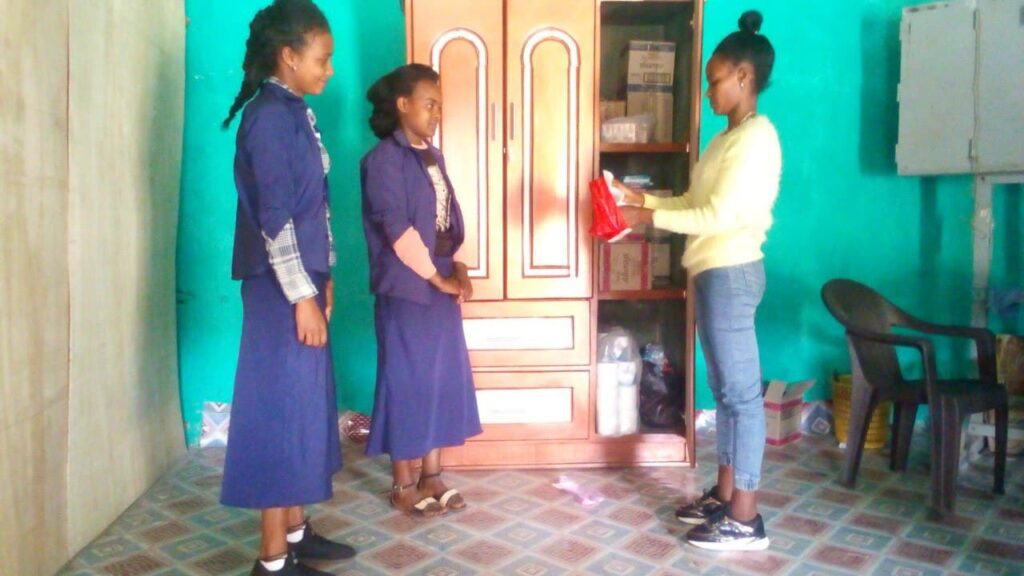
“Before, I and the other girls I know in this school had been missing classes when we see our period,” says Gelila. “Now, we are happy, we feel safe and healthy. We know what to do if there is an emergency in the school.”
A New Future for Girls in Soda
The committee, events and resource center are just the beginning of Holt’s initiative to make Soda High School a girl-friendly and girl-safe place for students. There are plans to build a new, larger restroom facility for students, as well as continuing programs to fight the stigma surrounding menstruation.
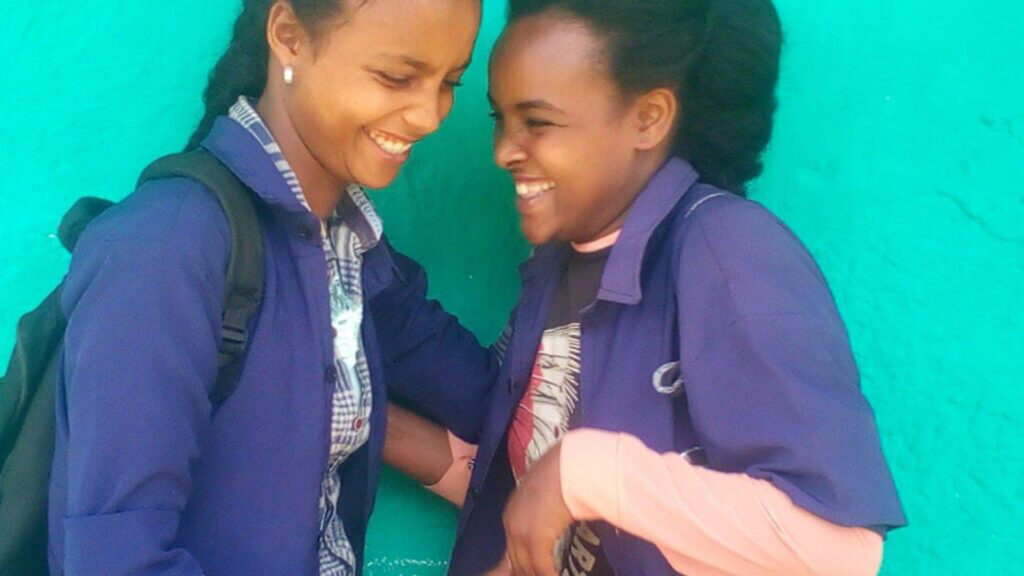
For girls in Soda — girls like Fana and Gelila — school and life will never be the same.
“Now,” says Fana, “we can freely and shamelessly learn.”
“Now, we can freely and shamelessly learn.”
These best friends are committed to continuing, and finishing, their high school education — adding “graduation” to the long list of life events they’ve experienced together. And thanks to brave girls like them and committed supporters across the world, this will be the same story for generations to come of girls in Soda.
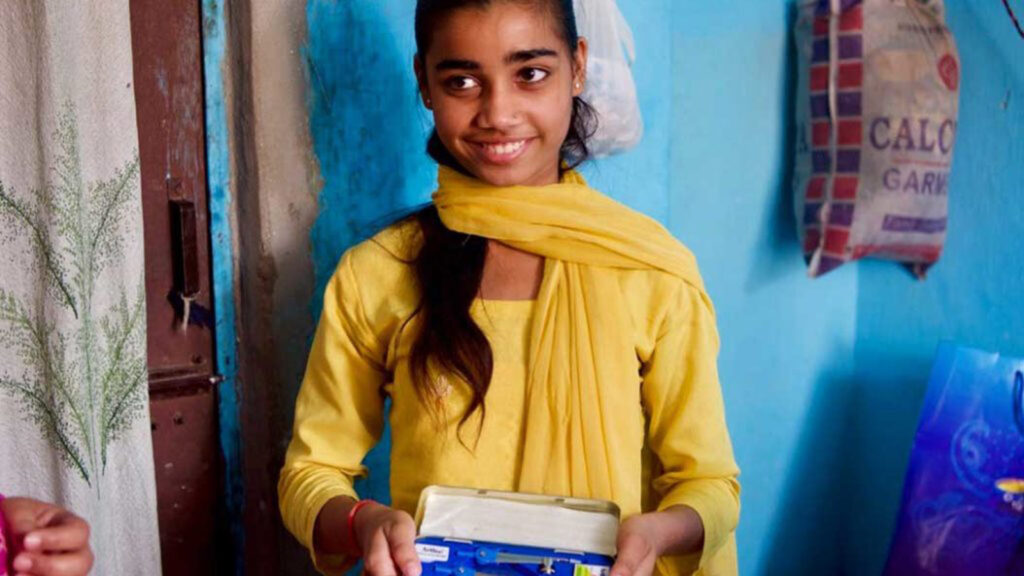
Send a Girl to School, Protect Her From Child Marriage
This year-end, choose for your gift to help a girl stay in school. You’ll keep her safe from child marriage, domestic violence and continuing poverty.
